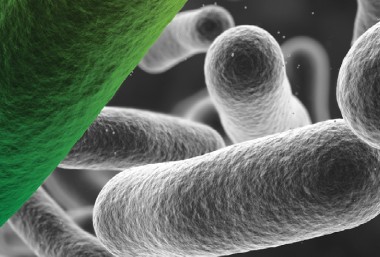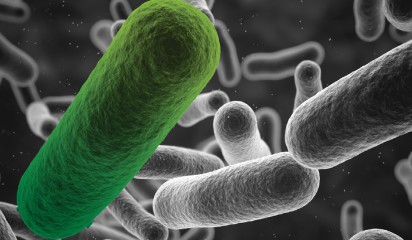We recently published an article describing significant changes to New Zealand patent law relating to microorganism-based inventions, focusing in particular on problems relating to the new deposit requirements. This article revisits several of these issues, highlights some additional problems, and discusses the 'solution' to at least one problem provided by the Intellectual Property Office of New Zealand (IPONZ) in their recently released practice guidelines.
The key message is: do not panic! Applications for microorganism-based inventions may still be filed in New Zealand. Assuming all other matters are in order, these applications will be granted. We are working with IPONZ and expect that in addition to the temporary work around for filing deposit slips proposed in their 19 September 2014 practice note, they will ultimately provide clearly set out practical solutions to each of the problems discussed in this article. We will keep you informed as we learn more.
Previously identified issues and a proposed solution
Under the New Zealand Patents Act 2013 (the Act) and Patent Regulations 2014 (the Regulations), patent claims to inventions relating to or relying upon a microorganism will be accepted 'if and only if' an applicant provides a deposit receipt for the microorganism to IPONZ within three months of making the deposit (see Section 43(1)(b) and Regulation 59 (1)). As discussed in our last article, this requirement simply makes no sense where no application has yet been filed. Rather, it appears that the above provisions may have come from the provisions set out in Australian Regulations 3.30 that relate to when the deposit requirements in an Australian application cease to be satisfied (Section 41(4)).
Microorganism deposits are generally made well before any decisions about where subsequent patent applications will be filed. In addition, even if a final filing decision is made within three months of deposit, IPONZ has confirmed to us that they have no capacity to receive, index and subsequently apply deposit receipts related to applications that have not been filed in New Zealand. Clearly, the new deposit requirements are unworkable - both for applicants filing microorganism patents, and for IPONZ.
We alerted IPONZ to the problem outlined above because under section 71(1) an application will be found void for failure to comply with the deposit requirements. We have been told that Regulation 59, as currently worded, does not reflect IPONZ's intentions. We understand that the Regulations will be amended. However, any legislative change is likely to take some time.
In the meantime, IPONZ released a practice note that attempts to address this issue. A patent applicant who 'could not have been reasonably expected or required to provide a receipt within the prescribed period' may request an extension of time under Regulation 147. The practice note states that 'An extension of time will only be provided where exceptional circumstances exist. The request should be filed at the time of filing a patent application or as soon as reasonably possibly thereafter.' The practice note does not specify what constitutes an 'exceptional circumstance' or what will be considered 'as soon as reasonably possibly thereafter'.
However, the practice note clearly states that, 'The change is required to clarify the practice where applicants in certain circumstances could not have been reasonably expected to comply with the deposit receipt requirements of regulation 59(1).' So, for the time being, the majority of patent applications directed to microorganism-based inventions filed in New Zealand will need to include a request for an extension of time under Regulation 147 when the required deposit receipt is filed. There will be rare exceptions where an application is filed with a deposit receipt within three months of making the deposit.
Additional problems with Section 43
We have identified several additional problems relating to the deposit requirements set out in Section 43. Section 43(1)(d) also requires that the specification includes details regarding the deposit and depositary institution within a prescribed period. It appears that the prescribed period referred to in s 43(1)(d) is the same period as set out in Regulation 59; ie, within three months of the deposit! Again, this requirement is clearly unworkable in a situation where a microorganism has been previously deposited for patent purposes, but the specification has not been filed within three months of the deposit.
There is another problem with section 43(1)(e) which relates to the rights and obligations of a third party requesting a deposited sample. Section 43(1)(e) requires that, from the filing date of the specification, samples of the microorganism have been obtainable from a prescribed depositary institution as provided by 'those rules'. The reference to 'those rules' is to Section 43(1)(d) (See also section 43(1)(a)) which requires that, at all times since the end of the prescribed period the specification has included (i) the name of a prescribed depositary institution from which samples of the microorganism are obtainable as provided by the rules relating to microorganisms. The prescribed period is the same three months from deposit as discussed above.
However, the rules relating to microorganisms (that specify how a microorganism may be obtained) are Rules 11.1 to 11.3 of the Budapest Treaty. Rules 11.1 to 11.3 specify how a third party may be certified to obtain a sample, by 1) an industrial patent office (IPO) of a contracting state or regional authority, or 2) where the IPO is not one of contracting state or regional authority, under the laws of that country.
New Zealand is not a signatory of the Budapest Treaty, and the Act and Regulations are completely silent about which third parties might have the right to obtain a deposited sample, and about what conditions must be satisfied for a third party to have that right. Literally read, this means that 'the rules' do not apply to IPONZ, and a third party request for certification from IPONZ cannot be granted by IPONZ under the Act. As a consequence, no third party can obtain a sample from an international depository authority for a patent application filed in New Zealand that relies on a deposited microorganism, the provisions of Section 43(1)(e) cannot be met, and all such applications are at risk of being deemed void.
Once again, it seems that the full implications of the Act and Regulations were not considered, as a literal reading of both suggests that many patent applications filed under the 2013 Act could be challenged for failure to meet the legislative requirements.
We do not believe this was the intent of the new law. Rather, we believe from our conversations with IPONZ that the intent of the Section 43 deposit requirements is to protect the public interest by ensuring sufficient description and enablement of microorganism based inventions. This is because under section 71(1) an application will be found void for failure to comply with the deposit requirements.
However, significant uncertainty arises due to conflicts between the Act and the Regulations. These conflicts must be clarified by IPONZ before an applicant for a microorganism based invention in New Zealand will feel comfortable that their patent application will be granted, or their granted application will not be deemed invalid.
We expect that in due course, the Regulations will be amended to address the problems outlined above. We will continue to work with IPONZ to highlight any further problems related to the Act and Regulations should they arise, as well as to address any other issues that are important to all New Zealand patent applicants.
If you have any questions or concerns about the issues raised in this article we would be happy to speak with you. Please contact Teresa Griffiths.






